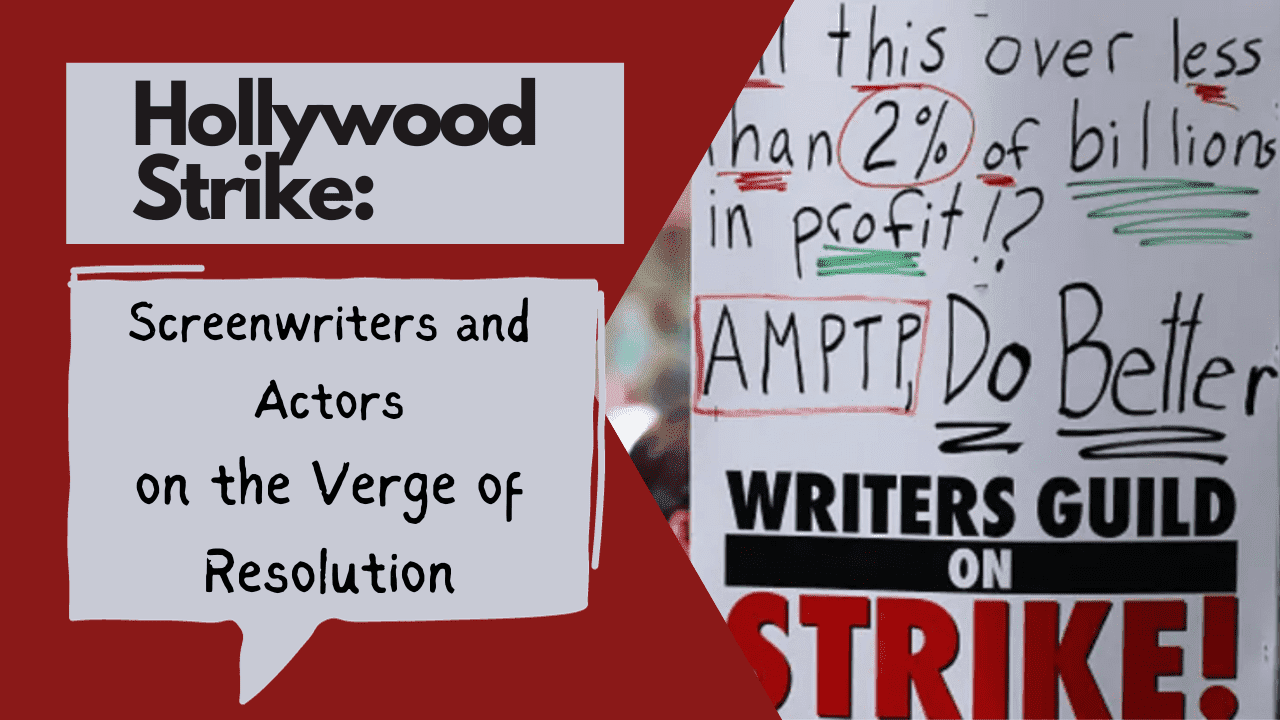Hollywood Strike Update: Tentative Deal Reached
The Writers Guild of America (WGA) and the Alliance of Motion Picture and Television Producers (AMPTP) reached a tentative deal on a new contract on September 24, 2023, after nearly five months on Hollywood Strike. The deal, which must still be ratified by WGA members, is expected to end the strike and allow production on film and television projects to resume.
Table of Contents
The strike began on May 2, 2023, after the WGA and AMPTP failed to reach an agreement on a new contract. The WGA’s demands included increased wages, improved streaming residuals, and greater diversity and inclusion in the industry.
The strike had a significant impact on the Hollywood film and television industry, with many projects being delayed or canceled. It also had a ripple effect on other industries, such as tourism and hospitality.
The tentative deal reached by the WGA and AMPTP includes the following key provisions:
Increased wages for writers, including a 3% raise in the first year of the contract and a 2.5% raise in each of the next four years.
Improved streaming residuals, with writers now receiving a percentage of the revenue generated by their work on streaming platforms.
Greater diversity and inclusion in the industry, with the AMPTP agreeing to set targets for hiring writers from underrepresented groups.
The tentative deal also includes a number of other provisions, such as increased health and pension benefits for writers.
The WGA’s board of directors has already voted to recommend the tentative deal to its members. The deal will now be put to a vote by all WGA members, and if it is ratified, the strike will end.
The tentative deal is a victory for the WGA and its members. They have been able to achieve significant gains in terms of wages, streaming residuals, and diversity and inclusion. The deal is also a good outcome for the Hollywood film and television industry, as it will allow production to resume and ensure that new content is created for audiences to enjoy.
Impact of the Strike
The Hollywood writer’s strike had a significant impact on the film and television industry. Many projects were delayed or canceled, and the strike also had a ripple effect on other industries, such as tourism and hospitality.
According to a study by the Los Angeles County Economic Development Corporation, the strike cost the Los Angeles economy an estimated $2.5 billion. The study also found that the strike led to the loss of over 19,000 jobs.
The strike also had a negative impact on the film and television industry as a whole. According to a report by the Motion Picture Association of America, the strike caused a 10% decline in box office revenue in the United States and Canada in 2023. The report also found that the strike led to a 5% decline in television production in the United States in 2023.
End of the Strike
The tentative deal reached by the WGA and AMPTP is expected to end the strike and allow production on film and television projects to resume. This is good news for the film and television industry, as it will allow new content to be created for audiences to enjoy.
The end of the strike is also good news for the Los Angeles economy, as it will bring back jobs and economic activity.
What’s Next?
The tentative deal reached by the WGA and AMPTP must still be ratified by WGA members. If the deal is ratified, the strike will end and production on film and television projects will be able to resume.
It is expected that many projects that were delayed or canceled during the strike will now be put back into production. It is also expected that new projects will be greenlit, as studios and networks look to create new content for audiences to enjoy.
The end of the strike is a positive development for the film and television industry, and it will be interesting to see what new and exciting projects are created in the coming months and years.
Additional Thoughts
The Hollywood writer’s strike was a significant event in the history of the film and television industry. It was the longest Hollywood writer’s strike in over 20 years, and it had a major impact on the industry as a whole.
The strike was a reminder of the importance of writers in the film and television industry. Writers are the ones who create the stories and characters that audiences love. They are also the ones who bring those stories and characters to life on screen.
The strike also highlighted the need for greater diversity and inclusion in the Hollywood film and television industry. The WGA made diversity and inclusion a key priority in the strike, and the AMPTP agreed to set targets for hiring writers from underrepresented groups.

